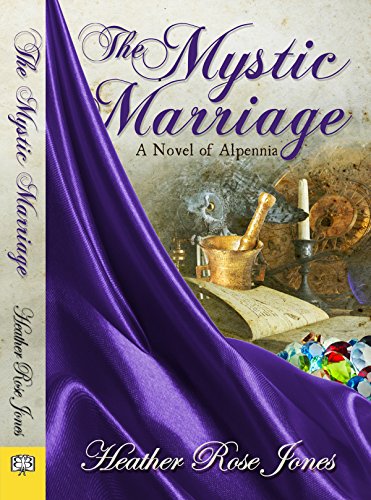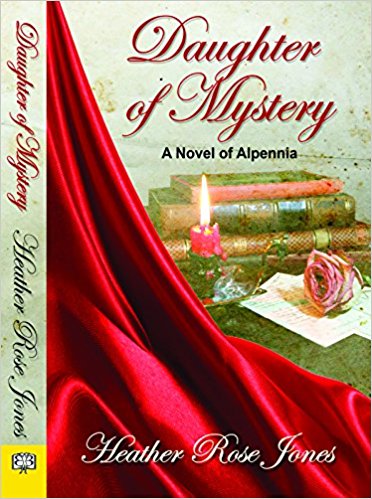
Work in progress: The Fresco and the Fountain
So my work in progress is Part Two of The Artist Enchanters Series – The Fresco and the Fountain. This book picks up the story a few months after the devastation and destruction wreaked at the end of The Firefarer, and is told from the perspectives of the three main characters as well as arch villain Lino Ampelio Ol Terenzo. I’m hoping that The Fresco and the Fountain will be ready for release by April this year.
Below is part of a sample chapter from the new book, in which Vito is trying to put the past behind him and learn something of Pagi arts.
***
“You will observe how the artist draws our attention to the hunters’ chase.” Avala Ol Hauriro circled the central motif of the painting with a jewelled finger.
Vito craned forward. “Yes. I see.”
The artwork was small in scale, framed in dark, resinous walnut and balanced on an easel in the centre of his study. To its fore, a tight knot of Pagi hunters pursued a wounded hart through dense woodland. The forest itself resembled an exercise in geometry rather than a depiction of nature, its trees a sprouting series of matchsticks.
“Look carefully, Vito. The artist was cunning. The hunters themselves are a mere distraction.”
“They are?” He peered into the painting once more. Nothing changed. One grand Pagi Lord charged, suspended in paint, his spear raised high above his shoulder. Behind him rode his band of followers pointing, crying out as the deer sprang away into the distance. Vito shook his head, frustrated. “What am I looking for?”
“Vito…” Avala’s eyes were grave and grey. It was hard to guess her age. And the Pagi were nothing if not arch dissemblers. But she seemed of middle years; a cascade of thick, chestnut curls framing the sharp, even contours of her face. “Vito,” she sighed, “as I have already explained, the painting itself is an assembly of ochre and lead, of malachite, copper and carmine. Its enchantment is released when you truly see it, Vito. It all depends on your act of sight. Look at it again. Look beyond the hunters and into the forest. Look at it and see what the painter is really telling you.”
He shifted his gaze from hunters to trees as instructed: at the mustard brown of their bark and the emerald shreds of their leaves. At the quaint parakeets and owls which nestled in their branches. The lightest breath of wind brushed his cheek, like a woman’s kiss. Vito shivered. This was unwise; he should tear himself from the painting now. He was too old to learn of Pagi art without falling into its net. It would ensnare him: a poor, lapsed monk who knew nothing of its dangers. But without this knowledge, he would never hope to prove a match for his brother. And so he forced himself to look.
The forest parted. Boughs bent to his sight, the wind sifting the leaves. The hart bounded past, having evaded the Pagi. And there, lying amid a grove of fir trees lay a naked man and woman, their clothes strewn across the grass. They clung to each other, rising together in their love making. And then the woman raised her head and looked directly at Vito, her grey eyes meeting his over her lover’s shoulder. Her hair was a wild shock of brown curls.
Sucking in his breath, sweating, his heart dancing wildly, Vito stepped away…and back into the studio, into the waning light of an autumn afternoon. He stared at Avala. “You!”
“So you saw us.” She played idly with a ring of sapphire set upon her right index finger.
“And he…he was…”
“Vito!” Her eyes betrayed amusement. “He was the artist. And the Pagi Lord…”
“Your husband!”
“Yes. My husband. Philo Ol Hauriro. But we’re not here to talk about my infidelity, are we? We’re here to talk about art.”
“Does he know?” Vito gasped, breathless.
“He would do if he’d looked at that painting in the way you just had, Vito. The irony is that it hangs on my bedroom wall and yet he’s never really seen it. Vito,” she grasped his wrist, shaking him out of shock. “You invited me here to teach you about art. For what purposes I neither know nor care. But let this be our first lesson. Every Pagi painting is a lock. And your eyes are the key to that lock.”
A lock and its key. The words threaded through his memory, stirring and disturbing. “And all art acts in this way…music, sculpture, architecture…they are all locks to which my eyes…my mind is a key?”
Avala nodded. “Without your sight, your way of perceiving them or hearing them, they are nothing. Imagination is alchemy, Vito.”
“And what…what about words. Could my own thoughts work upon them in the same way…as a key?”
“Indubitably.”
“Wait here.” He held up a hand and dashed from the study, tearing down corridor after winding corridor until he’d reached his own chamber. Breathless, he crouched beside the bed and dragged a battered old satchel out from under it. The leather of the bag was faded, scratched and in places pocked with scorch marks. Vito slung it across his shoulder and raced back to the study where Avala stood with her back to him, gazing out of the window. He felt inside the satchel for the book, tracing his fingers over its torn cover; over the title engraved across its spine. Then, without further hesitation he tipped it out onto the desk, embarrassed when two tawny plaits of hair fell out beside it. Hastily, he brushed them back into the bag and opened the book, flicking through its pages, trying to ignore the stories it had weaved all that hot summer as he had wandered grief-ridden along the parched paths of the Pagi and into an arena of mass slaughter.
The words were still there, written by an unknown hand, scrawled across the base of the final page. Death is but a locked door. And I am the key. And now he was certain that Avala, with all her knowledge of Pagi ways, with her insights into magic and art, would help him to unlock that door. A strange coldness pricked the hairs on the back of his neck. She was behind him, he realised: peering over his shoulder at the book. He sensed her fear.
“Where did you get that?” she whispered.
“Is it true, Avala?” He turned to her. Her lips had thinned to pale lines; her eyes worked with fear.
“Is it true?” he repeated. “If I read these words in the right way; if I set my imagination to work on them, will I unlock the door of death?”
“Vito,” her voice seemed to echo up from cavernous depths. “Vito, I am going to leave now.”
“But you said…you said you could teach me all there was to know about art!”
“Vito, I have given my life to art. But I won’t give up my soul for it.”
“What do you mean?”
“Burn that book, Vito. For all our sakes. Don’t let it tempt you. Don’t read it, don’t look at it. I’m…I must go. I can’t stay here.” She was gathering up the painting, wrapping it in a swathe of linen.
“Avala, please!”
“I’m sorry, Vito.”
She didn’t look back. She was gone, out the door, her footsteps echoing to light clips as she fled from the palace. He sank down in his chair, brooding on the book. It was all he had…that, the seal and the hair. Avala didn’t understand; how could she? She hadn’t seen the things he’d seen, and for all her knowledge of art, she wouldn’t ever come close to the powers, the forces which had laid waste to entire armies, which had wrought such suffering, pain and death. Avala, he decided, was a novice. And so, for that matter, was his brother. If he unlocked the door of death itself, if he could right the wrongs of the past, then he would be greater than all of them. And Andre would come back, fleet of foot, tearing through the fabric of time with brightness and grace. Immortal.
***
Part One of The Artist Enchanters Series, The Firefarer is available here:








